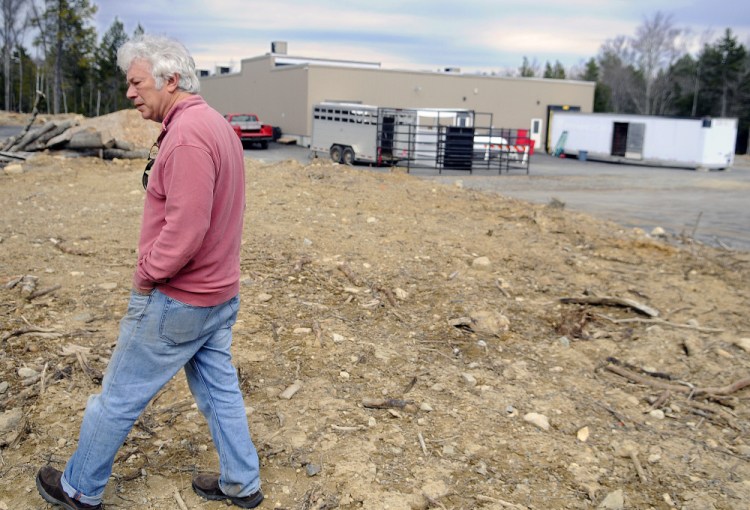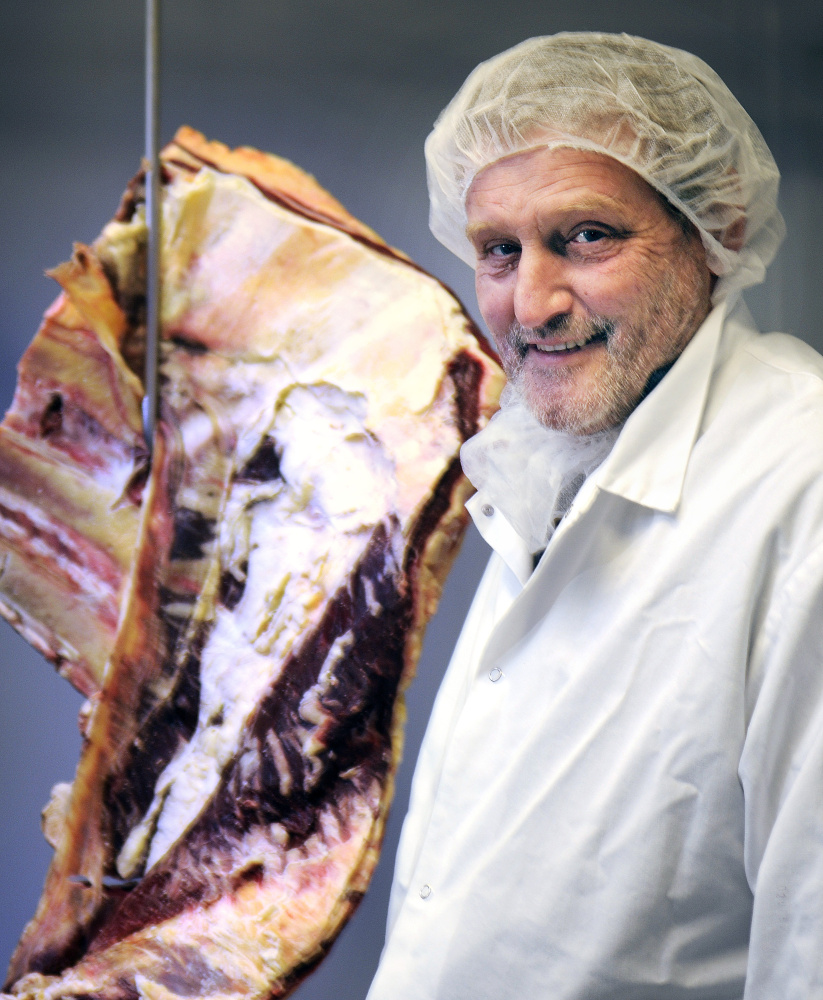GARDINER — A $2.6 million loan guarantee package announced by the U.S. Department of Agriculture Rural Development is expected to help the owners of Central Maine Meats expand further its landmark meat-processing operation.
The loan guarantee, in partnership with Machias Savings Bank, will allow Bill and Anette Lovely to refinance debt and provide working capital for the meat-processing company. The company will be able to bring its commercial smoker online as early as May and add a value-added cutting floor. In a year, the company’s employment is expected to reach about 50.
Lovely said the original financing package used all of his properties for collateral, so this deal means much of that can be released to be used as collateral for financing for other projects.
“Our No. 1 priority is sales, as Joel reminds me,” Lovely said Monday, referring to Joel Davis, the company’s managing director.
The move comes at a time when the company is working to close deals to supply meat to large-scale food distributors in Maine and beyond. Securing the federal loan package means the company can also move up implementation of some plans and explore other options, including tanning sheep hides and expanded training programs.
“This investment in local meat processing businesses, including a USDA-certified facility, strengthens our agricultural communities and farms by supporting centrally located services and a source of local foods for consumers,” Virginia Manuel, USDA Rural Development Maine state director, said in a news release. “In addition, investments like this one have a tangible economic impact on seven area businesses and 84 local jobs.”
The deal has been in the works since December, and it’s expected to be completed by the end of the month. Lovely said the property appraisals are expected to be done this week and the paperwork will be finalized shortly after.
The USDA-inspected meat processing facility opened its Brunswick Avenue facility in February 2015 and opened a USDA poultry slaughterhouse operated by Common Wealth Poultry Co., in the Libby Hill Business Park in Gardiner the following month. Its red meat processing facility opened in December and the flash freeze facility opened in January.
With each step, the company is moving closer to becoming a true food hub, leasing space to producers who will be able to have their products shipped straight from the facility after they are processed. Because of the USDA designation, its products can be shipped across state lines.
Even as the business side has grown, a training program has evolved to keep pace with the needs of the workforce. The company has an internal training program, a three-year external training program through Kennebec Valley Community College in Fairfield, and an apprenticeship program.
Some of the deals Central Maine Meats has already struck have sparked ideas for additional products.
Davis has noticed that at many facilities, hides of the processed animals are discarded and end up in landfill as does their potential value. There are no commercial tannery operations in Maine, he said, but that may change.
Adjacent to the slaughterhouse facility on the Gardiner-Richmond line, Davis has set up a small hide processing operation. He tapped Will Willard for the job after Willard sought him out, asking whether he had any sheepskins he could work on. The process is both labor and time intensive, but Davis said he thinks there may be a market for tanned sheepskins and cowhides, even if only through an Internet storefront or on consignment to farmers markets.
Davis and Lovely also see merit in exploring the possibility of offering meat processing and packing training to prison inmates through an apprenticeship program.
With training for in-demand skills, Lovely said, those coming out of prison would be employable at wages between $12 and $20 per hour, which Lovely said is a good wage for the work.
“Mr. Davis came in to go down one road with me,” Lovely said, “but we have gone down 10 or 12 different ones.”
Send questions/comments to the editors.



